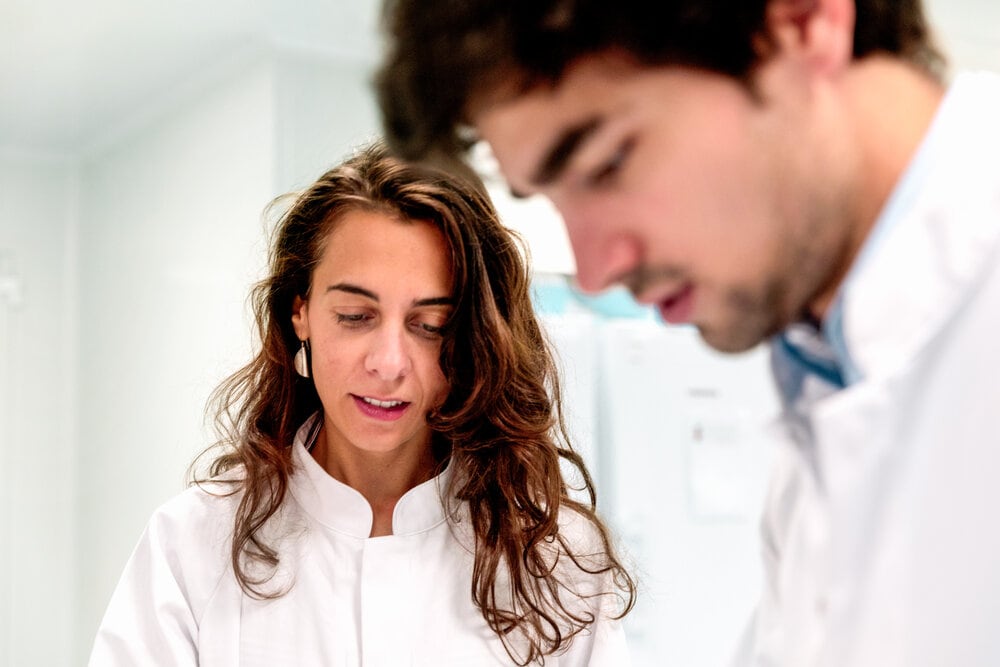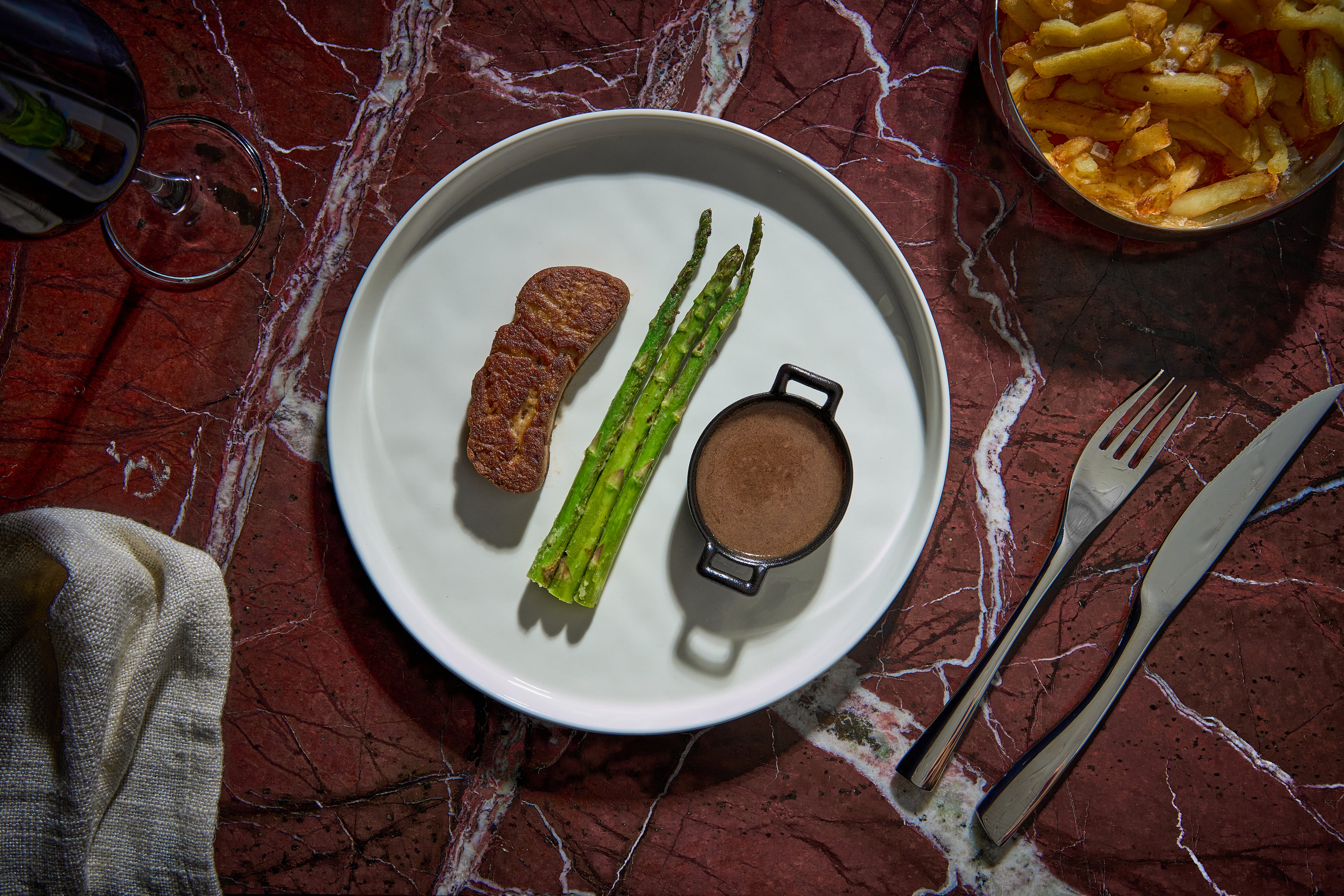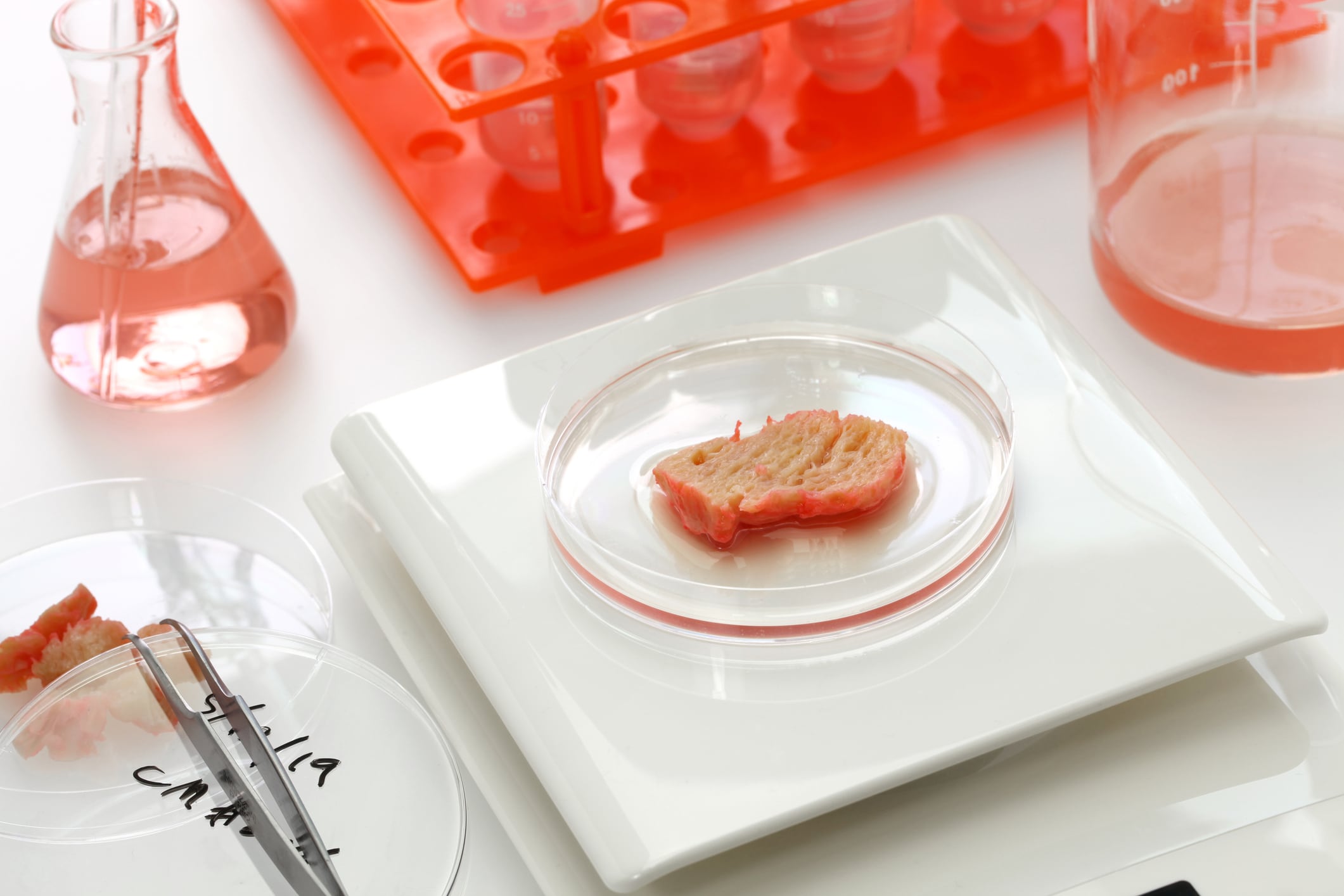Unlike consumers in Singapore, Israel and the US, the British haven’t been able to buy cultivated meat in the UK.
That’s because neither the Food Standards Agency (FSA) nor Food Standards Scotland (FSS) have deemed a cell-cultivated product (CCP) to be safe for humans to eat.
To be fair to both agencies, they haven’t been given much of a chance. Until recently, very few companies had applied for the official go-ahead. But that’s now changing with the UK’s new regulatory ‘sandbox’ for CCPs. Just three months in, and the sandbox is earning rave reviews.
What is the cell-cultivated sandbox?
The UK launched its regulatory sandbox for CCP in March this year. The initiative is considered somewhat of a trailblazer when it comes to food tech safety assessments. While other governments attempt to ban cultivated meat, the UK is investing in its future.
With £1.6m (€1.8m) in funding, the FSA and FSS have recruited a new team to better understand how CCPs are made, how to test whether they’re safe to eat, and importantly for industry, how applicants can best meet food safety expectations.
A cohort of CCP makers was invited to join the sandbox, including Hoxton Farms, Roslin Technologies and Uncommon Bio in the UK; Mosa Meat, Gourmey, and Vital Meat in Europe; BlueNalu in the US; and Vow in Australia.
From the FSA’s perspective, early signs show the sandbox is delivering exactly what it wanted to. Participants – ranging from companies to sector organisations or academic bodies – are openly sharing their views on production processes, potential hazards, and how these hazards might be mitigated.
The FSA will use information from sandbox workshops, its own research and assessments of current CCP applications in its system, alongside learnings from international regulators, to form its standards.
“Three months in, the programme is delivering exactly as we intended,” says Dr Joshua Ravenhill, head of Cell-Cultivated Product Sandbox at the FSA. “We’re confident the programme will meet all its objectives by 2027 - ultimately giving consumers a greater choice of safe foods.”
Sandbox helps drive more novel foods applications
If the sandbox helps advance the novel foods application process, it’s hoped cultivated meat, seafood or dairy products could soon land on people’s plates.
Some CCP companies submitted novel foods applications to the FSA before the so-called sandbox was on their radars. French cultivated chicken start-up Vital Meat is one, as is Israeli cultivated steak company Aleph Farms. Cultivated pet food maker Meatly - which was successful mid-2024 - is another.
After joining the regulatory sandbox programme, Mosa Meat also submitted its first application for market approval –just last month. The Dutch cultivated meat pioneer credits its application, at least in part, to the sandbox itself.
The company included the FSA’s feedback from pre-submission consultations in its application, explains Mosa Meat CEO Maarten Bosch. “In essence, the regulatory sandbox is already making an impact on attracting innovative companies like ours to the UK market.”

It could be that more CCP makers submit novel foods applications soon. Cultivated fat producer Hoxton Farms tells us it’s working on its regulatory application. “The sandbox has already proven to be a major asset, giving us a much clearer view of the FSA’s expectations and how to best prepare our dossier,” says co-founder Ed Steele.
Australian cultivated meat maker Vow is also preparing to lodge its novel foods application with the FSA. The sandbox is helping the cultivated quail and “mammoth” (made from sheep cells) to build its dossier, but not necessarily because it’s a sandbox participant.
Pre-application support is being offered to the wider CCP industry as part of the sandbox, explains general counsel and head of regulatory affairs, Andrew Janis. “We expect to make use of the pre-application support meetings to ensure our eventual submission is as complete as it can be.”
Vow expects to submit its dossier to the FSA later this year.
Cell-cultivated sandbox: What’s working and what’s not?
On the whole, the cell-cultivated sandbox has been praised by those involved. Even those not participating in the sandbox have shown interest, according to the FSA. And not just companies, academic bodies too. The idea is that the whole CCP industry will benefit from the project.
So what are some of the best aspects of the programme?
For Hoxton Farms, what’s really stood out is the teamwork. The sandbox has created a space where companies are truly open in sharing details about their processes, says co-founder Steele. This kind of collaboration will help the FSA build a “strong, science-based” regulatory framework.
“Streamlining the approval process will be essential if the UK wants to become competitive globally in cultivated foods.”
Ed Steele, co-founder, Hoxton Farms
Over in Australia, Vow tells us the “transparent communication” the start-up’s had with regulators has been a standout feature. The opportunity to discuss explicit improvements to the regulatory environment has been invaluable, says Janis.
As to what’s not working so well, very little. Vow’s regulatory lead was hesitant to pick out faults, especially since just a handful of workshops have been held so far, but admitted working with an agency on the other side of the globe can come with challenges. “One minor improvement might be if they could consider an excursion to our home turf in Sydney so we can engage with the regulator in a slightly more favourable timezone.”
London-based Hoxton Farms doesn’t have to grapple with long-haul communication, but does see other obstacles to a smooth-running regulatory approval process. “While the sandbox is a strong step forward, broader reform of the novel foods regulatory framework and further funding for the FSA are still needed.
“Streamlining the approval process will be essential if the UK wants to become competitive globally in cultivated foods,” says Steele.
Could the UK become a global leader in cultivated meat?
With a quicker and easier CCP approval process, the UK could be setting itself up as a leader on the world stage.
This would mark a distinct change from its time as part of the European Union, when the European Food Safety Authority (EFSA) was in charge of novel foods assessments. These processes on the bloc are considered lengthy, labour-intensive, and expensive for business.

Vow is hopeful that the sandbox programme will help build trust between industry and regulator, which would bring significant benefit to the UK’s cultivated meat industry in the short-to-medium term.
Hoxton Farms is backing the sandbox to position the UK as a global leader in cultivated meat. It has the potential to do so, says co-founder Steele. If the “strong momentum” to engage proactively already seen from policymakers, food producers, consumers, and now regulators, continues, the future looks bright on home soil.
“The UK could become one of the first countries to create a clear, efficient pathway to market for cultivated products, unlocking innovation and accelerating commercialisation across the sector.”
As part of the programme, the FSA has committed to completing two CCP risk assessments by the end of two years. That means Brits could see cultivated meat on menus relatively soon.


